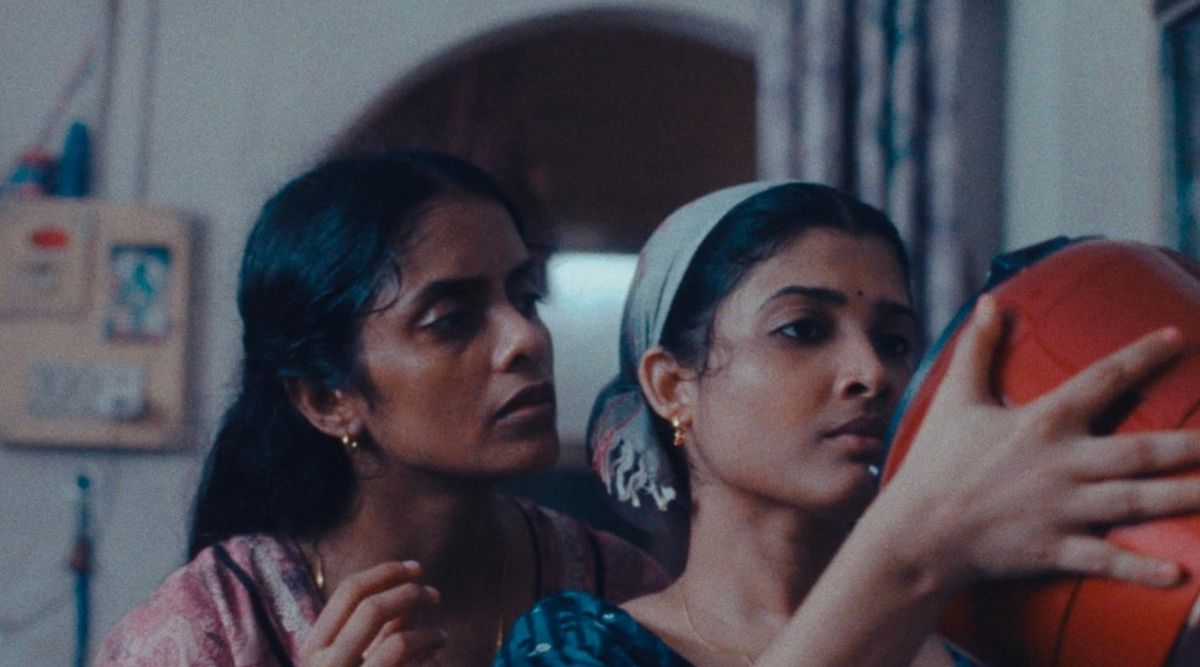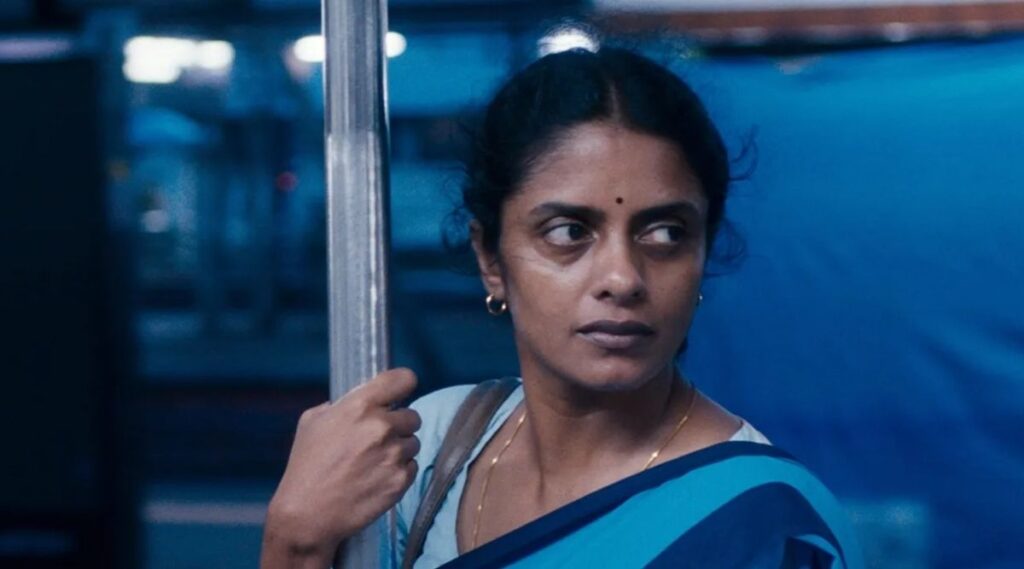Writer and director Payal Kapadia portrays the duality of love at a distance and the plight of the working class in the languid, stirring All We Imagine as Light (2024), distributed by Sideshow and Jansu Film. Three nurses in Mumbai, Prabha (Kani Kusruti), Anu (Divya Prabha), and Parvaty (Chhaya Kadam), live with and cope with their own injustices and how to cope with one another’s.
Prabha is a matter-of-fact woman whose husband, whom she never loved, left her to go work in Germany. Anu is her younger roommate in love with Shiaz (Hridhu Haroon), a Muslim man from a different neighborhood with whom she struggles to find places private enough to be intimate. Parvaty is their older colleague who works multiple jobs and has been facing a long legal battle over the right to stay in her home as a massive developer seeks to unhouse her.
Each woman in All We Imagine as Light has their own way of coping with the circumstances holding them down in life: denying emotions altogether, choosing to remain hopeful, and accepting that things just won’t get better. But when each of them looks outside of themselves and at one another’s struggle, especially Prabha, they’re able not only to lift each other, but lift themselves out of the cycles holding them back.
All We Imagine as Light is a dim and sleepy movie. It traps you in the intimacy of these three mundane lives while placing them against the backdrop of a super-massive city. The movie doesn’t bring you down with images of extreme poverty or confuse you with excessive wealth; instead, little moments on the streets where people send and receive innocuous text messages remind you that the city looms large and these three characters are just small blips on its radar.
Sometimes, it’s slightly to the movie’s disadvantage. It’s easy to get lost, wondering what bigger experiences are happening outside of the tiny apartment and place of work where much of the movie takes place. Not because All We Imagine as Light hints at some greater ongoing beyond its pale, but because life moves so slowly when most of it is spent just going to work and coming home to cook dinner.
Transgression is power in All We Imagine As Light.

But when the characters break from their routines, always to transgress somehow against the grand plot the city expects of them, that friction sparks the light by which the movie shines. Acts of protest against the powers that be, small and large, and stolen kisses late at night behind bushes in the park let all three characters live a little, and through that life, we see the personalities the city otherwise crushes shine through.
These moments accentuate the power of the actors, especially Kusruti, whose turns between stern and pastoral are subtle but profound. An unexpected piano score also accents what could be. It’s a decidedly out-of-place but pleasant sound that calls your attention every time it pierces the otherwise scoreless scenes.
With a jazzy sound most of the time, the music builds a triumphant energy, breaking what could otherwise become monotonous about the women’s daily lives. Its apparent otherness in the crowded city makes it feel like another world is possible. And All We Imagine as Light eventually makes it so, even if it requires some surrealism.
All We Imagine as Light is a deceptively quiet drama with a loud point of view. It transcends its small place in time to help demonstrate a world as it could be through unwavering sisterhood, a willingness to see outside of one’s own perspective, and the rare opportunity to go physically beyond your regular confines. When these elements combine, the characters’ soft support for one another lights up an otherwise dark world.
All We Imagine as Light is playing now in select theaters.
All We Imagine as Light
-
Rating - 7.5/107.5/10
TL;DR
All We Imagine as Light is a deceptively quiet drama with a loud point of view.







